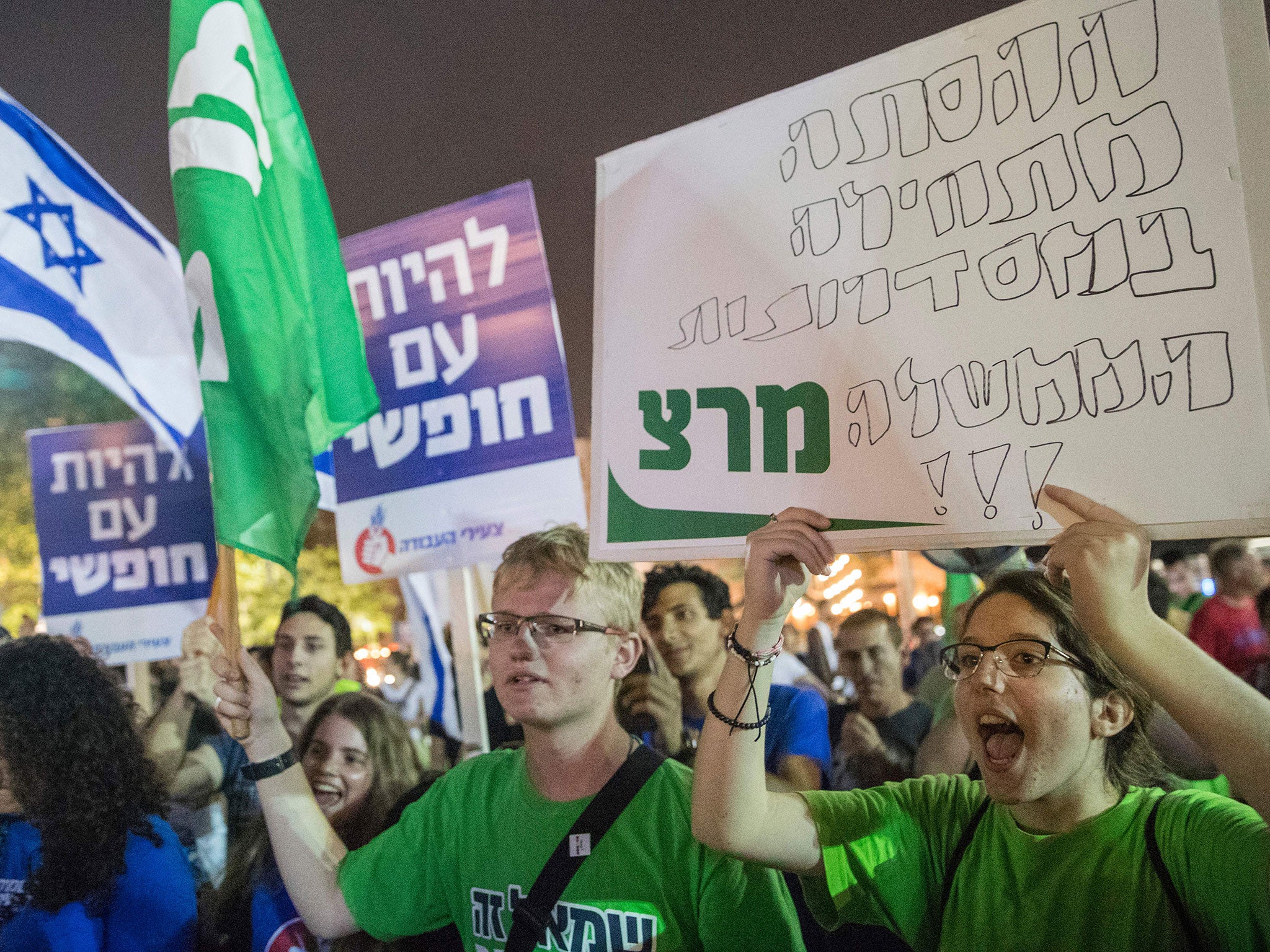Israel longest-running news programme shut down with hour's notice as Netanyahu scraps public broadcaster
Prime Minister accused of attempting to influence media with new broadcasting corporation

Your support helps us to tell the story
From reproductive rights to climate change to Big Tech, The Independent is on the ground when the story is developing. Whether it's investigating the financials of Elon Musk's pro-Trump PAC or producing our latest documentary, 'The A Word', which shines a light on the American women fighting for reproductive rights, we know how important it is to parse out the facts from the messaging.
At such a critical moment in US history, we need reporters on the ground. Your donation allows us to keep sending journalists to speak to both sides of the story.
The Independent is trusted by Americans across the entire political spectrum. And unlike many other quality news outlets, we choose not to lock Americans out of our reporting and analysis with paywalls. We believe quality journalism should be available to everyone, paid for by those who can afford it.
Your support makes all the difference.Israel’s longest-running news programme has been shut down with just an hour's notice as Benjamin Netanyahu’s government moves to replace the country's public broadcaster.
Hundreds have protested over the closure for the state-run Israel Broadcasting Authority (IBA) amid allegations of attempts to exert political influence on the press.
Mabat LaHadashot, a prime-time news programme aired continuously since 1968, broadcast its last programme on Tuesday night after being abruptly cancelled.
Anchors held back tears while announcing the news, with staff gathering in the studio for an emotional rendition of the national anthem as the credits rolled.
“This comes sooner than we expected. We thought of parting a bit differently than this,” said presenter Michal Rabinovich.
Journalists described the closure as a “disgrace”, following months of political wrangling between Mr Netanyahu and finance minister Moshe Kahlon over the future of public broadcasting in Israel.
Mr Netanyahu has said the IBA’s shutdown is necessary for planned reforms but reporters have accused him of clamping down on critical coverage and attempting to increase control.
Its replacement, the Israel Broadcasting Corporation (Kan), was stripped of a news division during negotiations, leaving a separate entity to broadcast current affairs and hundreds of reporters in limbo.
The launch has been postponed several times but is currently slated for Monday, when the IBA will be officially shut down.
Israel’s Knesset will vote on the issue on Wednesday following marathon meetings in parliament, which started on Monday and ran until 4am, then continued on Tuesday as a bill was prepared for its final reading.
MKs have been grappling for representation of different sectors of Israeli society, including Arabs, Orthodox communities and non-Hebrew speakers currently served by the IBA.
The law’s first reading was passed in May with just 32 votes in a Knesset plenum, as the opposition boycotted the vote.
Oren Hazan, an MK from Mr Netanyahu’s Likud party, announced plans for laws “ensuring the criminal accountability of journalists who fabricate stories”, amid unfavourable coverage of corruption investigations concerning the Prime Minister.
“It cannot be that journalists, reporters, researchers or any pisher can publish whatever they want,” he told the Knesset.
“And even if they are sued they publish an apology, but lives are ruined.”
One of the ongoing investigations into Mr Netanyahu concerns expensive “gifts” to his family, which could amount to graft or conflicts of interest, while a second probe dubbed “Case 2000” is over recorded discussions with an Israeli publisher to restrict the activities of a rival newspaper using legislation.
In its annual freedom of the press report, Freedom House downgraded Israel to “partly free” earlier this year, comparing Mr Netanyahu’s treatment of journalists to the US President.
“Like Donald Trump, Israeli Prime Minister Benjamin Netanyahu and his spokespeople frequently insult and denounce members of the domestic media, and the Prime Minister rarely takes questions from reporters,” the watchdog said.
“In 2016, Netanyahu used his Facebook page to excoriate two high-profile investigative journalists, prompting several top reporters to sign a petition objecting to his conduct. He has also been accused of colluding with key media owners to shape favourable coverage.
“While Israel has historically enjoyed a vibrant and pluralistic media sector, these and other problems have caused press freedom in the country to decline in recent years."
Additional reporting by AP
Join our commenting forum
Join thought-provoking conversations, follow other Independent readers and see their replies
Comments